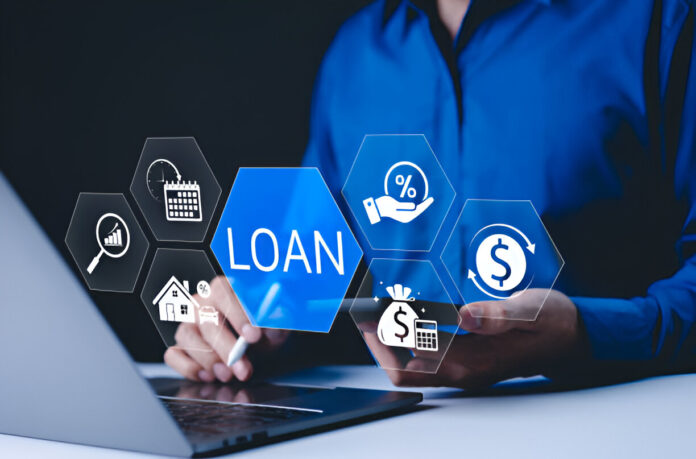Introduction: Helping You Out of Your Confusion
In this technology-driven world, everyone is busy with their own lives. Be it goal-oriented savings or dealing with an unforeseen financial burden, the concepts of personal finance vs personal loan differ a lot. Both concepts are immensely beneficial; however, their roles differ.
In this article, we define personal finance and personal loans, analyze their advantages and disadvantages, and provide actionable tips to help you make informed decisions at any stage of life — whether planning for retirement, building credit history, or exploring debt-free strategies.
What Is Personal Finance?
Personal finance deals with the financial goals of an individual, such as budgeting, spending, investing, building emergency funds, retirement planning, and managing debt.
Key Components of Personal Finance
- Budgeting: Managing income and spending habits to maintain financial stability.
- Saving: Building emergency funds and saving for personal objectives.
- Investing: Growing wealth by purchasing stocks, bonds, or real estate.
- Debt Management: Strategically paying off credit cards, mortgages, or other loans.
- Retirement Planning: Preparing for financial stability during later years.
Why Personal Finance Matters

A strong personal finance strategy helps with:
- Managing money-related stress.
- Accumulating wealth strategically.
- Achieving financial self-sufficiency.
- Avoiding unnecessary debt.
What Is a Personal Loan?
A personal loan is an unsecured loan provided by banks, credit unions, or online lenders for purposes like medical expenses, debt consolidation, or home repairs.
How Personal Loans Work
- Loan Amount: Typically between $1,000 and $50,000.
- Repayment Terms: Usually 12 to 60 months.
- Interest Rates: Ranging from 6% to 36%, depending on credit score and income.
Common Uses of Personal Loans
- Covering emergency expenses.
- Paying off high-interest credit card debt.
- Funding weddings or vacations.
- Making home improvements.
- Investing in education or career growth.
Personal Finance vs Personal Loan: Key Differences
| Aspect | Personal Finance | Personal Loan |
|---|---|---|
| Definition | Managing income, savings, and expenses | Borrowing money for personal use |
| Goal | Long-term financial stability | Short-term funding |
| Cost | No direct cost | Interest and fees involved |
| Risk | Low if managed well | Risk of a debt trap if misused |
| Flexibility | High | Limited to repayment terms |
| Example | Building an emergency fund | Taking a loan to cover medical bills |
When to Focus on Personal Finance
- Saving for large purchases to avoid debt.
- Building an emergency fund for unexpected expenses.
- Planning for long-term goals like homeownership or retirement.
- Improving credit by managing expenses responsibly.
When a Personal Loan Makes Sense
- Debt Consolidation: Combine multiple high-interest debts into one manageable loan.
- Emergency Expenses: Cover medical bills or critical repairs quickly.
- Big Purchases: Fund necessary expenses when savings aren’t enough.
- Building Credit History: Improve your credit score through timely repayments.
Pros and Cons of Personal Finance vs Personal Loan
Advantages of Strong Personal Finance
- Greater financial control.
- Less reliance on debt.
- Consistent wealth growth.
- Reduced stress during financial emergencies.
Advantages of Personal Loans
- Quick access to funds.
- No collateral required.
- Fixed repayment terms for better planning.
- Debt consolidation options.
Disadvantages
- Personal Finance: Requires time and discipline; results take time.
- Personal Loan: Interest and fees can add up; risk of over-borrowing.
How to Balance Personal Finance and Personal Loans
- Build an Emergency Fund First — Aim for 3–6 months of expenses.
- Borrow Only What You Can Repay — Stay within your income limits.
- Use Loans Strategically — Focus on needs, not wants.
- Prioritize Repayment — Pay off loans faster to save on interest.
- Continue Investing in Yourself — Grow your savings and investments.
Practical Tips for Better Financial Decisions
- Track Every Dollar: Use tools like Mint or YNAB.
- Compare Lenders: Always check interest rates and terms.
- Automate Savings: Set recurring transfers to savings.
- Review Credit Reports: Check regularly for errors.
- Seek Expert Advice: Consult a financial planner for personalized strategies.
Real-Life Scenario: Saving vs Borrowing
Imagine your car repair costs $3,000:
- With an Emergency Fund: You pay in cash and avoid interest.
- Without Savings: You rely on a personal loan and incur additional costs.
The Role of Credit Score in Both
- Personal Finance: A higher score provides better loan terms and lower interest rates.
- Personal Loans: Good credit unlocks favorable repayment options.
Expert Recommendations for 2024–2025
- Use high-yield savings accounts for emergency funds.
- Opt for debt consolidation loans only if rates are significantly lower.
- Invest in financial literacy resources.
- Stay updated on loan policies and interest rate changes.
Conclusion: Building a Smarter Financial Future
The debate of personal finance vs personal loan isn’t about choosing one over the other; it’s about using both strategically. Build strong financial habits, and use loans only when truly necessary.
To get more knowledge about Personal Finance, visit: Introduction to Personal Finance
Call to Action
- Audit your budget.
- Grow your emergency fund.
- Consult a financial expert before taking a loan.
FAQs: Personal Finance vs Personal Loan
Are personal loans safe?
Yes, if borrowed responsibly with a clear repayment plan.
What is the main difference between personal finance and a personal loan?
Personal finance is about managing money, while a personal loan is borrowing to meet immediate needs.
Is it better to save or take a personal loan?
Saving is preferable; loans should be a last resort.
Can personal loans improve my credit score?
Yes, if you repay on time.
How much should I save before considering a loan?
Aim for 3–6 months of expenses in savings first.
GET MORE KNOWLEDGE ABOUT FINANCE BY VISITING: FTECH

